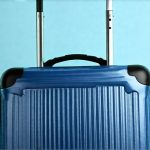Long car trips are often associated with freedom and adventure, but for individuals managing urological conditions – encompassing issues related to the urinary tract and male reproductive system – they can quickly become sources of significant discomfort and anxiety. The extended periods of sitting, limited access to restroom facilities, and changes in hydration levels all present unique challenges. Understanding how dietary choices can proactively mitigate these challenges is crucial for a more comfortable and enjoyable journey. This isn’t about restrictive dieting; it’s about mindful adjustments that support bladder health, minimize irritation, and prevent potential complications during prolonged travel.
The core principle lies in recognizing the interconnectedness between diet and urinary function. Certain foods and beverages are known to exacerbate symptoms of common urological concerns like overactive bladder (OAB), interstitial cystitis (IC), or prostatitis. Conversely, others can be incorporated to promote healthy bladder control and overall well-being. Preparing for a long drive with this knowledge empowers travelers to take charge of their comfort and prevent disruptions to their travel plans. This article will explore practical dietary adjustments designed specifically for those navigating the demands of extended car journeys while managing urological health.
Pre-Trip Dietary Considerations
Planning your diet before you even start packing is essential. It’s not just about what you bring with you on the road, but also how you prepare your body in the days leading up to the trip. A gradual shift towards bladder-friendly foods can make a significant difference. Consider reducing or eliminating common irritants from your diet for at least 24-48 hours prior to departure. These typically include caffeine (coffee, tea, energy drinks), alcohol, spicy foods, acidic fruits and vegetables (citrus, tomatoes), artificial sweeteners, and carbonated beverages. This isn’t a permanent change, but a temporary adjustment designed to minimize potential flare-ups during travel.
The goal is to create a baseline of calm for your bladder. Hydration is also paramount; however, it’s not simply about drinking more water. It’s about consistent, moderate hydration throughout the days leading up to the trip and during the journey itself. Avoid large volumes of fluid at once, which can overwhelm the bladder and lead to increased urgency. Instead, sip on water regularly, aiming for a steady intake that keeps you adequately hydrated without causing excessive trips to the restroom. Think of it as maintaining a ‘bladder buffer’ – prepared and calm, rather than reactive and overwhelmed. If you’re planning on making longer-term changes, explore urology diet plans for men with office jobs to build sustainable habits.
Finally, think about your gut health. A healthy digestive system often correlates with better bladder control. Incorporating fiber-rich foods like whole grains, fruits (non-acidic varieties), and vegetables can promote regularity and reduce pressure on the urinary tract. Probiotic-rich foods such as yogurt or kefir may also be beneficial for supporting a balanced gut microbiome. Remember that dietary needs are individual; what works for one person might not work for another.
On-the-Road Nutrition & Hydration
Once you’re on the road, maintaining consistent hydration and smart snacking becomes key. Avoid impulsive choices at gas stations or rest stops, which often feature sugary drinks and processed snacks known to irritate the bladder. Instead, pack a cooler with pre-prepared, bladder-friendly options. Water remains your primary beverage of choice. Herbal teas (non-caffeinated) can also be soothing and hydrating. If you absolutely need caffeine, opt for small amounts and balance it with plenty of water.
Snacking should focus on foods that are gentle on the urinary tract. Good choices include: – Plain crackers or toast – Bananas – Blueberries – Pears – Rice cakes – Small portions of lean protein (chicken breast, turkey) – avoid highly seasoned options. Avoid anything overly processed, salty, or sugary, as these can contribute to water retention and bladder irritation. Strategic snacking prevents extreme hunger which often leads to impulsive, less-healthy choices. Planning ahead is key, and you might find simple urology meal prep for busy weeks helpful in streamlining your preparation.
Remember the importance of pacing yourself. Don’t try to ‘catch up’ on hydration if you’ve fallen behind; instead, focus on consistent sipping throughout the drive. Plan regular stops – even short ones – not just for restroom breaks but also to stretch your legs and improve circulation. This is particularly important given that prolonged sitting can put pressure on the bladder and pelvic floor muscles.
Managing Bladder Urgency During Stops
Even with careful planning, unexpected urges to urinate may arise. When stopping, prioritize a complete emptying of the bladder. Don’t rush the process; take your time to ensure you’re fully relieved. This minimizes the risk of residual urine and reduces the frequency of subsequent urges. If you experience significant urgency or discomfort during stops, consider doing some gentle pelvic floor exercises (Kegels) – if appropriate and approved by a healthcare professional – to help strengthen bladder control muscles.
Be mindful of restroom availability along your route. Utilize apps or websites that map out rest stops and their amenities. Knowing where facilities are located can alleviate anxiety and prevent the need for hasty, uncomfortable decisions. Carry travel-sized hygiene products with you in case of emergencies. A little preparation goes a long way toward minimizing stress and maximizing comfort during unexpected situations.
Dealing With Specific Urological Conditions
If you have a diagnosed urological condition, such as OAB or IC, tailor your dietary adjustments accordingly. Individuals with OAB may benefit from limiting fluid intake even further and avoiding diuretics (substances that increase urine production). Those with IC often find relief by strictly adhering to an anti-inflammatory diet, excluding foods known to trigger flare-ups. Consult with your healthcare provider for personalized recommendations based on your specific needs and sensitivities.
Never self-diagnose or treat a urological condition. These dietary adjustments are intended as supportive measures alongside professional medical care. If you experience any new or worsening symptoms during your trip, seek medical attention immediately. Don’t hesitate to adjust your travel plans if necessary to prioritize your health and well-being. Remember that listening to your body is crucial – it will provide valuable signals about what works best for you. Consider how top diet adjustments for men with pelvic pressure can help manage symptoms.
The Role of Pelvic Floor Health
While this article focuses on dietary aspects, it’s vital to acknowledge the integral role of pelvic floor health in managing urinary function during long car trips. Prolonged sitting can weaken these muscles over time, contributing to bladder control issues. Incorporating regular pelvic floor exercises (Kegels) into your routine – both before and during travel – can help strengthen these muscles and improve overall bladder support.
However, proper technique is essential. Incorrectly performed Kegels can be ineffective or even exacerbate symptoms. Consider consulting with a physical therapist specializing in pelvic health to learn the correct form and ensure you’re performing the exercises effectively. Additionally, be mindful of your posture while driving. Maintaining good spinal alignment and avoiding slouching can reduce pressure on the bladder and pelvic floor muscles. A comfortable and supportive seat also contributes significantly to overall pelvic health during extended travel. Planning for bathroom breaks is also essential; review bathroom planning for long commutes and trips before you go.
For those with diabetes, managing blood sugar levels alongside dietary considerations can be crucial to overall urological health. Explore urology diet advice for men with diabetes to learn more.
Finally, remember that even small changes can make a big difference. Don’t feel overwhelmed by the prospect of completely overhauling your diet; focus on making gradual, sustainable adjustments that support your overall well-being and enhance your travel experience. And if you find yourself struggling to maintain a consistent routine, learning how to avoid food fatigue on a urology diet can help keep you motivated.





















